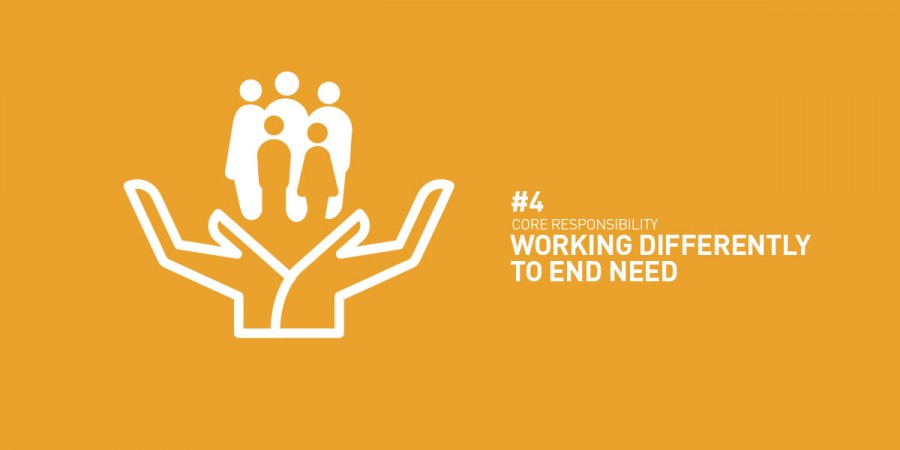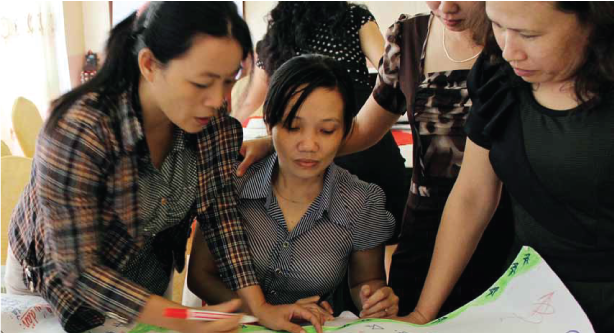As a six-year-old boy, Ban Ki-moon and his family were forced to flee their home during the Korean war. Inspired by his experiences, the now UN Secretary-General has convened the first-ever World Humanitarian Summit as a call for global action to alleviate the suffering of the 125 million people around the world affected by conflicts and disasters. To chart a way forward, he called for an “Agenda for Humanity” based on five core responsibilities, calling on global leaders to stand up for our common humanity and reduce human suffering.
In a series of five blogs, we will explore the core responsibilities through the eyes of those who need them the most: affected people.
Our leaders have the power to close the gap between the world that is and the world that should be. Visit impossiblechoices.org and ask your leader to come to the World Humanitarian Summit and take bold action to stop human suffering.
Core Responsibility 4: Working differently to end need
Sudden natural disasters will take us by surprise, but many of the crises we respond to are predictable. Imagine working with at-risk communities and partners to help them prepare for crises so they are less vulnerable when crises strike. Imagine if we not only collected better data on crisis risk, but also acted on it early. By doing this, we could reduce risk and vulnerability at a global scale.
This is the story of Ranh Nguyen, a farmer from Binh Dinh, Vietnam:
For millions of people in rural Vietnam, the impacts of climate change are mounting and sometimes deadly. As weather patterns change, many of Vietnam’s women in particular are paying a high price. Ranh Nguyen, a 35-year-old farmer, explained: “The weather becomes more extreme and erratic. Storms, heavy rains and floods destroy fields and houses and kill animals and people every year,” she said.
Ranh and her neighbours joined the Women’s Union and work with UN Women to strengthen the role of women in disaster risk reduction and disaster-reduction management. “Last year … we prepared better for our families and our village before the storm came … Thanks to good preparation and detailed mapping that we developed in the meetings before each storm, nobody in the village was killed or injured severely in last year’s storm season. Crops, fowl and cattle were saved,” said Ranh. “I could not swim before and used to be frightened by the flooded river. But now I am no longer afraid of water thanks to the swimming classes. I will teach my children how to swim and tell other people to learn how to swim too.”
Credit: UNWOMEN



Comments